IAC Legislative Bulletin – January 30, 2018
30 Jan 2018, by admin Share :From the Director
During the interim three county commissioners (Ladd Carter, Bingham County; Dave McGraw, Latah County; and Terry Kramer, Twin Falls County) met monthly with three mayors (Shawn Barigar, Twin Falls; Paul Loomis, Blackfoot; and Diana Thomas, Weiser) to work together to develop consensus legislation to both address Idaho’s magistrate court funding challenges and prevent future litigation between cities and counties. The group received staff support from IAC, the Association of Idaho Cities, and the Administrative Office of the Supreme Court. The working group met throughout the summer, fall, and early winter to research the roles cities, counties, and the state play in the magistrate court system as well as various potential funding frameworks.
After researching a variety of funding alternatives, the workgroup settled on a framework that would dedicate revenues from the state liquor fund to pay for magistrate court operations. As part of the framework, 10% of state liquor funds would be dedicated over a five-year phase-in period at a rate of 2% a year. During this same time, liquor funds dedicated to the state general fund would shrink from 50% to 45% as would liquor fund revenues to cities and counties. Once fully phased in, liquor funds would be allocated 45% to the state general fund, 45% to cities and counties (60% to cities, 40% to counties), and 10% to counties dedicated to magistrate court funding. Upon full phase-in (assuming a 4.1% annual growth rate), 10% of liquor fund revenues would generate nearly $9 million in ongoing magistrate court funding revenues.
The state liquor fund was identified not only because of past and future projected fund growth but also because the fund represents a revenue source that is shared by all parties (cities, counties, and the state). The fund was also identified because so many of the criminal citations driving magistrate court activities can be tied to substance abuse.
The liquor fund revenues dedicated to magistrate courts would be allocated to counties as follows:
-
Each county would receive a base payment of $15,000.
-
50% of the remaining funds would be allocated to counties on a per capita basis.
-
The remaining funds (50%) would be allocated to counties based on the number of criminal infractions and misdemeanor citations issued in each county.
Upon full phase-in, Section 1-2218, Idaho Code, allowing a panel of district judges to order a city to provide magistrate court facilities, would also be repealed.
The proposed legislation represents a consensus effort between county commissioners and mayors and puts forth a solution to a longstanding problem. While a variety of alternatives were explored, this was the only alternative supported by both the county commissioners and the mayors in the workgroup. The Association of Idaho Cities has formally moved to support the magistrate court funding framework. The IAC Legislative Committee has reviewed the framework and made suggestions for changes which will be incorporated in the final draft. The Legislative Committee has voiced support for the framework and will take a formal vote on the proposal once the language is finalized.
At the moment stakeholders are working with key legislators to address any concerns that legislators have with the bill to ensure that it receives a hearing in the House Judiciary and Rules Committee. It is unlikely that a bill will be introduced by next week; however, we will have a pretty clear idea by then what the final bill will look like and whether or not there is sufficient legislative support for it to pass.
The IAC membership will have an opportunity to weigh in on magistrate court funding during our Midwinter Legislative Conference in Boise next week. A full fiscal analysis of the framework will be made available to the membership to assist in the discussion. This is also an area where local officials have worked collaboratively to begin addressing issues of common local concern.
I want to acknowledge and thank Commissioners Ladd Carter, Dave McGraw, and Terry Kramer for their diligent work on this issue. We hope the process of city and county officials working collaboratively together to resolve a local issue will serve as a model for handling future disputes between cities and counties. The fact that city and county officials worked together to resolve this issue has demonstrated what can happen when locals work together to resolve difficult policy problems. Legislators are beginning to take notice.
What to Watch
On Wednesday, two IAC priority bills (Senate Bill 1230 and Senate Bill 1231) will be heard in Senate Local Government and Taxation. While these are the first two IAC sponsored bills to advance through the legislative calendar we expect other IAC priority legislation to be scheduled for full hearings, including Senate Bills 1228 and 1229 in Senate State Affairs and House Bill 420 in House State Affairs. IAC staff are also working to secure print hearings for IAC priority legislation related to the justice levy cap and records retention of body cam and other digital law enforcement records.
It is also that time of the session where property tax legislation begins to surface. IAC is aware that IACI is working on legislation that would grant county commissioners the authority to exempt business personal property from taxation on a county-by-county basis. There would be no replacement revenue under such a scenario, meaning that if the bill were to pass and a county was to exempt business personal property from taxation, the county commission’s decision would result in a property tax shift or budget reduction not only for the county but all other taxing districts in the county. We are also watching for legislation to be introduced related to the assessment of timber lands, the process for disclaiming forgone property taxes, and potential legislation dealing with the new construction roll.






